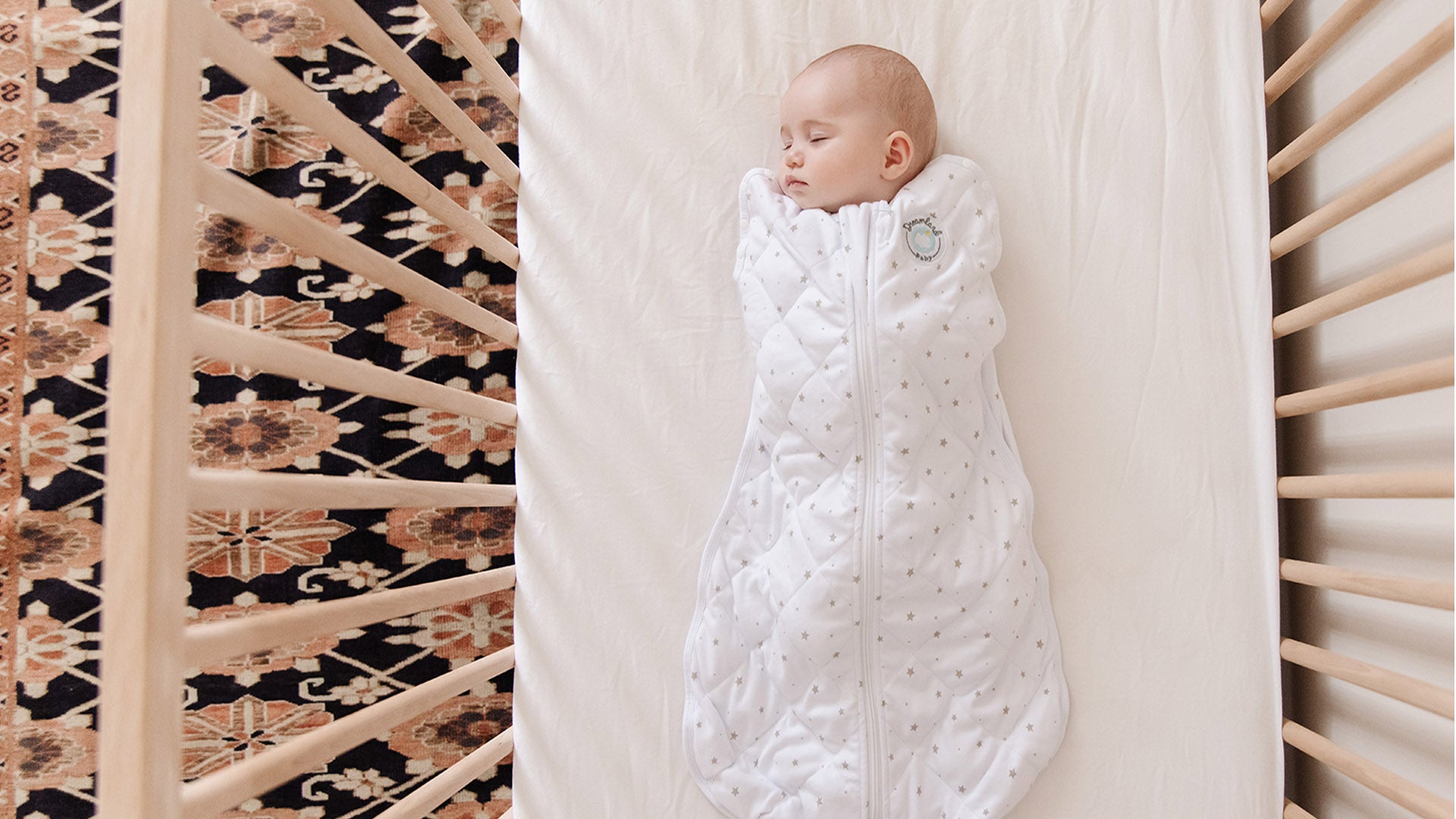Uncovering the details behind a baby’s circadian rhythm.
If you’re wondering about your baby’s sleep patterns, let’s start with first things first: baby circadian rhythm. This is important to understand when it comes to your baby getting the sleep they need. But what is circadian rhythm? Circadian rhythm is controlled by an area of the brain that is affected by daylight and darkness. Distinguishing between the two is essential in creating healthy sleep habits. Keep reading to learn more about newborn baby circadian rhythm and why it’s important in establishing healthy sleep patterns.
Do babies have a natural circadian rhythm?
When it comes to baby sleep and circadian rhythm, SleepFoundation.org states that “When babies are born, they haven’t developed a circadian rhythm yet. A newborn baby’s sleep cycle requires up to 18 hours of sleep, broken up into multiple short periods. Babies develop a circadian rhythm around four to six months of age, at which point they tend to sleep in larger blocks of time.”
What this means is that your baby will be doing a lot of sleeping in their first few months of life… and they’ll need it in order to grow and develop. By the time your baby is around 4 months, it’s great to introduce sleep training to get them on a proper sleep schedule. This kind of routine usually includes sleep cues like turning down the lights, soft music, and any of the Dreamland Baby products from our swaddle to sleep sack, even pajamas. Training your baby for sleep, while not always easy, will have long lasting and positive effects on the quality of your baby’s sleep, and assist in establishing their internal clock.
What is a healthy circadian rhythm for a baby?
Circadian rhythm is a fancy way of describing the internal clock that controls the sleep/wake cycle of every living creature - including your baby - in a 24-hour period. Since babies aren’t born with a pre-programmed clock, determining a healthy newborn circadian rhythm takes time and patience. By the time your baby is around four to six months of age, they will likely sleep for longer blocks of time because that internal clock is learning the difference between night and day.
How do you manage a newborn's circadian rhythm?
Here’s an interesting fact: by the time your baby is around 1 month old, they will likely be sleeping the same amount at night as they are during the day. While this is a difficult schedule for a parent to manage – hello, sleep deprivation! - at around 6 weeks old, your baby will start to create a sleep/wake cycle that helps determine the difference between day and night.
When do newborns figure out day and night on their own?
Your newborn spends most of their time sleeping… and eating… and eating… and sleeping. That’s because they need both in order to grow, develop and thrive! As they age, they will need to eat less and also, sleep for longer stretches. Starting at around 8 weeks, you may notice signs that your baby is tired. They may rub their eyes, yawn and or stretch a lot… pay attention! This will come in handy when you start sleep training and getting to know your baby’s natural rhythms. Remember, at around 4 months, you’ll likely want to start sleep training. In addition to the natural developments your baby is making, sleep training will help your baby learn the difference between night and day.
Why is the circadian rhythm important for baby sleep cycles?
Circadian rhythm is important in establishing the difference between waking daylight hours and nighttime. Your baby’s circadian rhythm won’t really kick in until around 4 months. While every baby is different, around this time your baby will likely be sleeping for longer stretches of time, although still waking up at least once during the night. The Dreamland Baby weighted sleep sack is great for transitioning through your baby’s sleep cycles. The gentle weight naturally reduces stress and increases relaxation through deep-pressure stimulation to give your baby feelings of security and comfort. When used in conjunction with sleep training, the sleep sack can be a great sleep cue, one that signals it’s time to drift off into Dreamland.
While it may seem forever to happen, by the time your baby is around 6 months, their circadian rhythm will be established and that will mean better - and more - sleep for everyone.



Share:
Do Babies Have To Be Swaddled?
How To Get A Newborn To Sleep Without Being Held